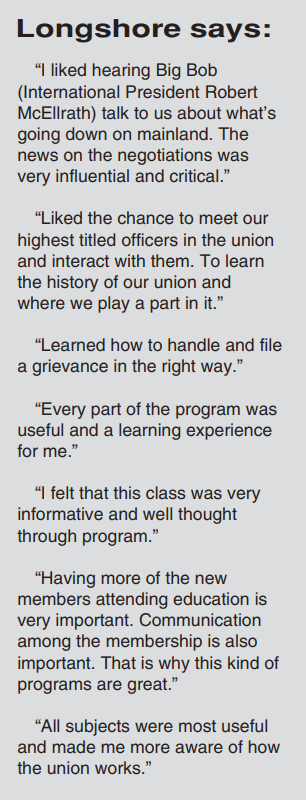The classes are part of the ILWU’s regular education program that focuses on providing on-going education to rank and file leaders and union members. A democratic union like the ILWU requires an educated and informed membership and on-the-job union leaders who get the support and training they need to do the work of the union. Thus far, six classes have been held on Hawaii, Maui, Kauai, and Oahu, attended by a total of 166 members. More classes will be scheduled later this year and throughout next year.
Big Island stewards sharpen their skills in a roleplaying exercise which challenges them to probe for the most important pieces of information when investigating a grievance. One person plays the role of a member with a problem and the steward must ask the right questions to get the facts behind the case—what happened, when and where did it happen, who was involved, why is this a grievance?
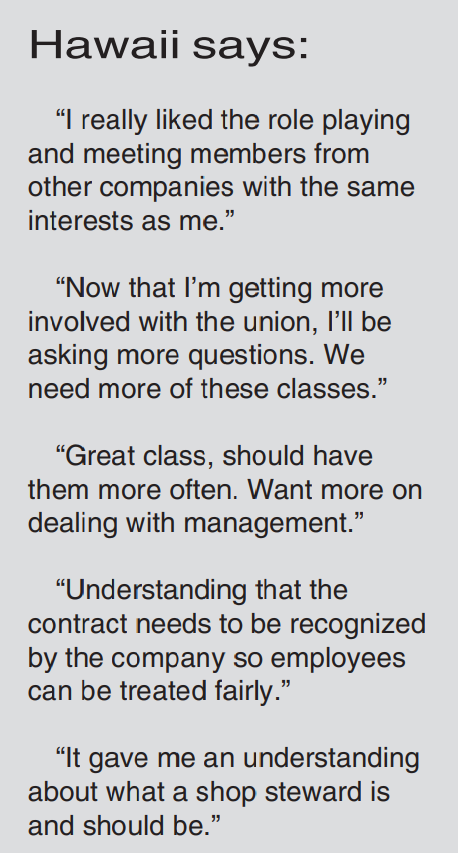
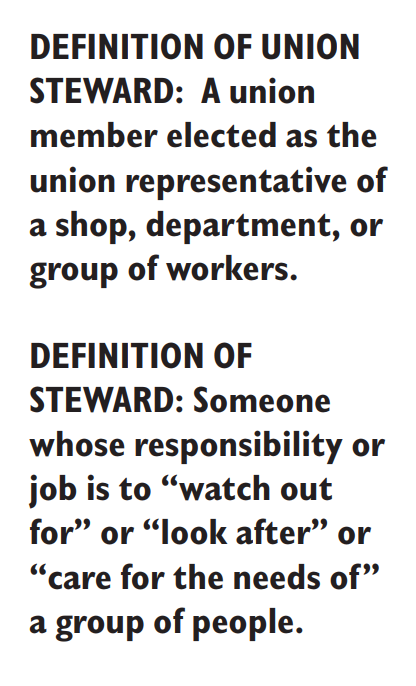
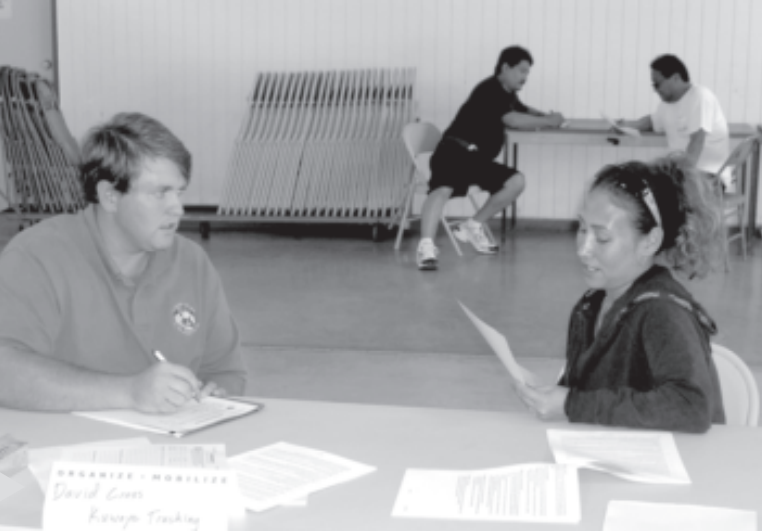
David Cross and Angela Nagai practice grievance interviews at the Hilo Steward’s class.
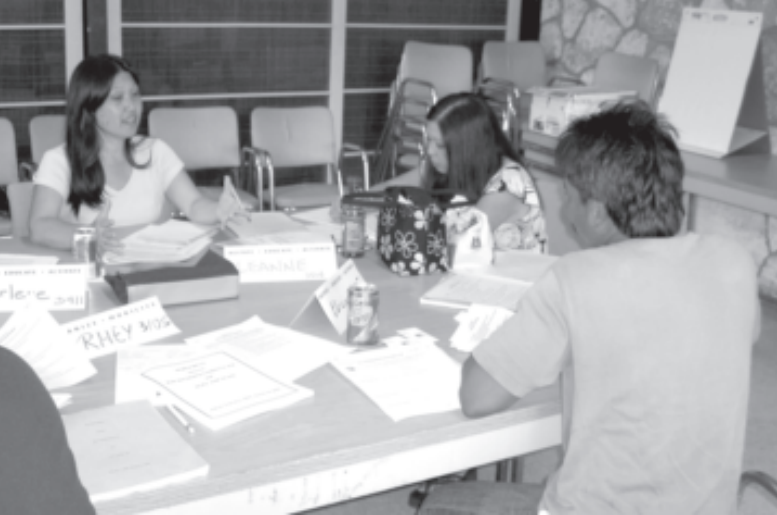
(L-r) Marlene Morton, Leanne Shiroma, Elicio Ramos. Kauai stewards consider the arguments they would use to defend a member who is unfairly disciplined by management. This exercise teaches the seven standards of just cause for discipline. Some of the standards include: was there adequate warning, was there a fair investigation, was there proof of guilt, was the discipline applied evenly to all employees?
Many of the Kauai stewards were motivated to become active in the union because of their desire to help their fellow workers. “To fight for the rights of every one who needs help,” said one steward.
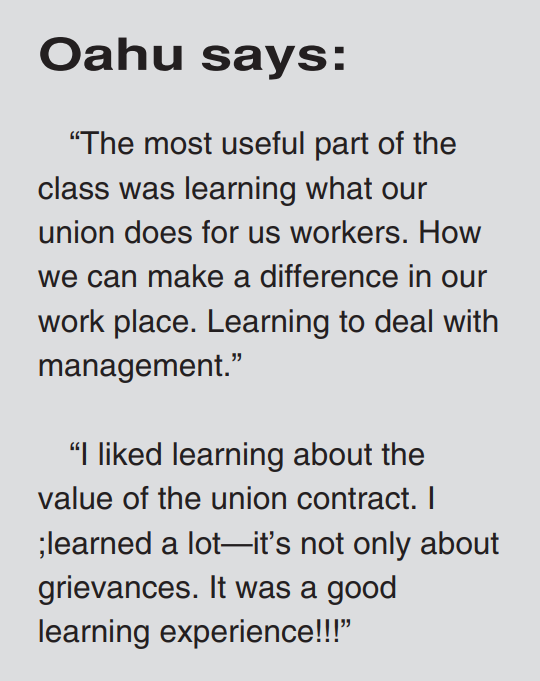
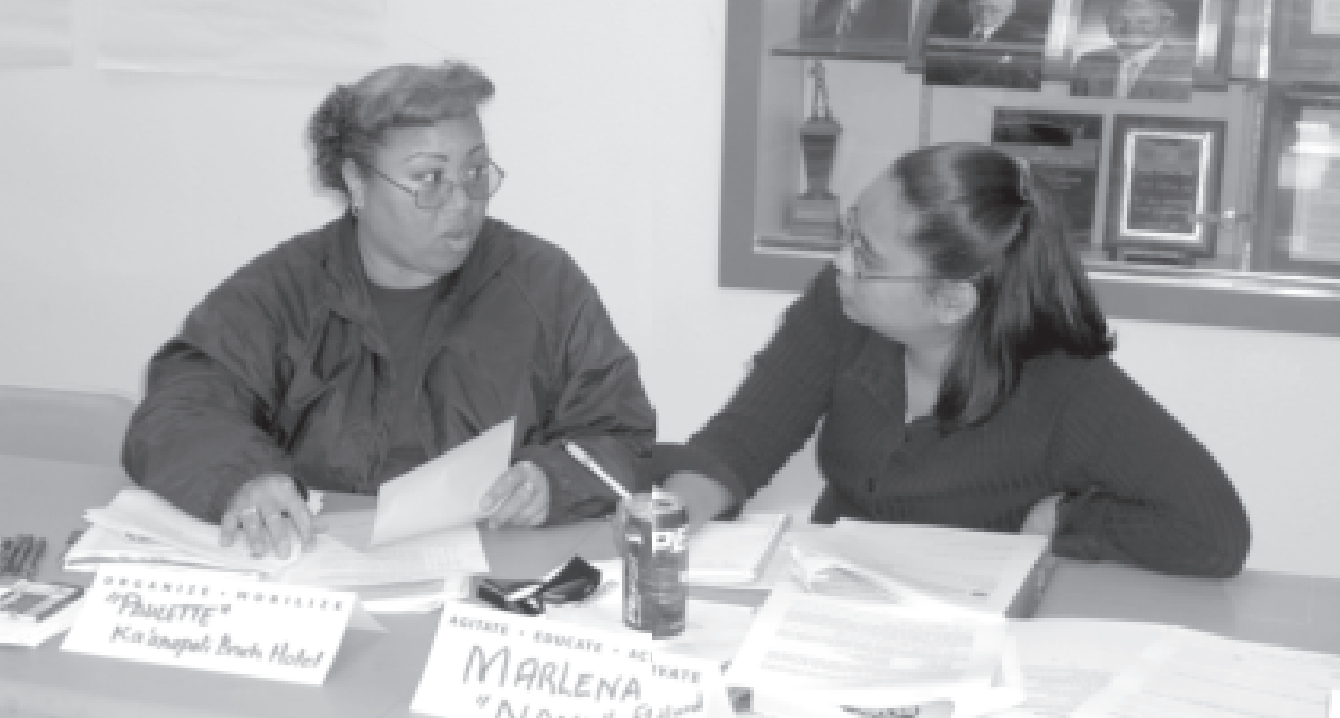
Paulette Abihai and Nani Robinson at the Maui Steward’s class held at the Wailuku office on March 29, 2007.
Maui stewards learn the real value of the union contract is in protecting their wages, benefits, and rights on the job. They learn how nearly every benefit on the job comes from the union contract—wage increases, overtime pay, work schedules, medical, sick leave, vacations, good working conditions, and more.
The union contract is also the source of workers’ rights, such as seniority, work opportunity, fair and equal treatment, a grievance procedure, and work schedules. “We learned how we can help ourselves and at the same time we can provide information about the union, because of all the benefits the union provides,” commented one steward.
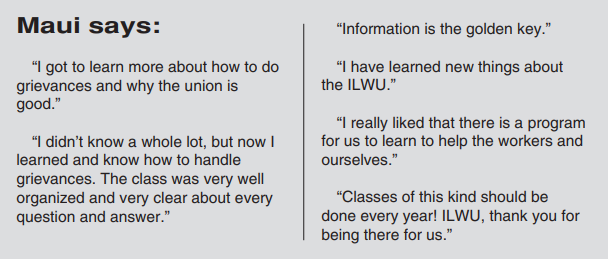
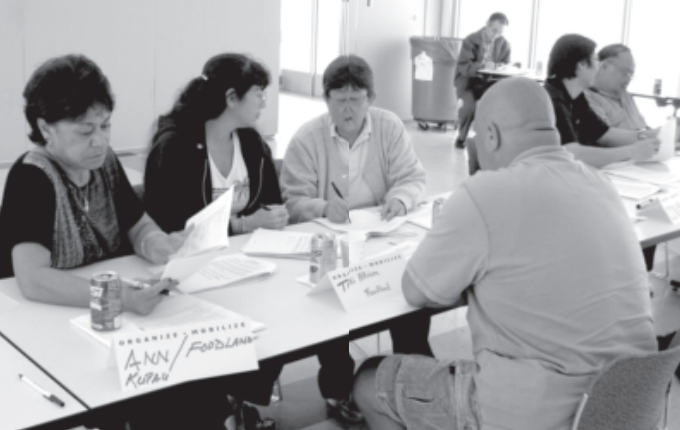
Ann Kupau, Terri Akiona, Frances Ishihara, Charles Williamson at the Oahu Steward’s class.
The education classes bring together ILWU members from many different companies and industries which gives them an opportunity to learn from each other’s experiences. “Having input from various companies was awesome,” said one Oahu steward. “I enjoyed learning about grievances but meeting new people was also fun. These classes should be offered to all union members so everyone knows their rights as employees.”
Longshore stewards learn the basics
Over 60 new officers and stewards from longshore units across the state attended a one-day educational program run by the Local on April 25, 2007, at the union’s Honolulu headquarters on Atkinson Blvd. This was the first time such a class was held for the longshore industry statewide, with members attending from Maui, Kauai, the Big Island, and Oahu.
Most of the program covered grievance han dling and the job of the union steward, but the union also took advantage of the occasion to give the mostly new leaders a preview of what to expect and how to prepare for the upcoming longshore negotiations in 2008. ILWU International President Robert McEllrath, who will head the union’s negotiating committee, was on hand to explain the union’s strategy and answer questions from the floor
The program began with a video about the lessons learned during the 2002 negotiations between the ILWU and the employer’s Pacific Maritime Association (PMA) for a new contract covering longshore members on the West Coast. Hawaii longshore members negotiate separately, but follow the framework and pattern set by the West Coast agreement.
Brother McEllrath explained how the union is preparing for a tough round of negotiations and is putting more resources into political action and public relations, “to show the public all of the positive things you do.” Maintenance of benefits, particularly medical and pensions, were critical issues in 2002 and will be equally important in 2008.
“The employers will try to pit us against each other,” McEllrath predicted. Thousands of new workers were added to the longshore workforce on the West Coast, and new technology is continuing to cause some jobs and jurisdictions to crossover.
The employers also want to start negotiations as early as this year, while the anti-labor Bush Administration remains in power. “Political action is pivotal,” McEllrath added. “The PMA wants early negotiations because they lost the House and Senate in the last elections.”
Whether or not to start negotiations earlier and other issues will be decided by the Longshore Caucus, made up of elected representatives from ILWU longshore locals on the West Coast. The caucus is meeting in San Francisco from April 30 - May 4, 2007.
“You’re the union’s eyes and ears on the docks,” McEllrath concluded. “Talk to everyone on the docks. Listen to your union negotiating committee.”
Nate Lum, the chair of Oahu’s Longshore Units, urged the new leaders to “be more creative and do things smart. Educate the membership when you go back.” ◆
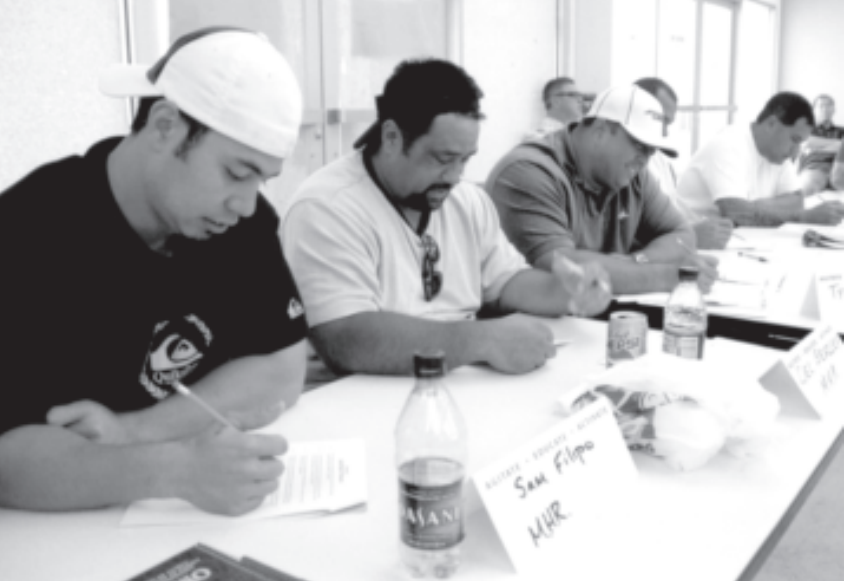
With over 60 participants, this was one of the largest single class held by the ILWU in recent years. Typically, a steward’s class will be attended by 20 to 30 members.
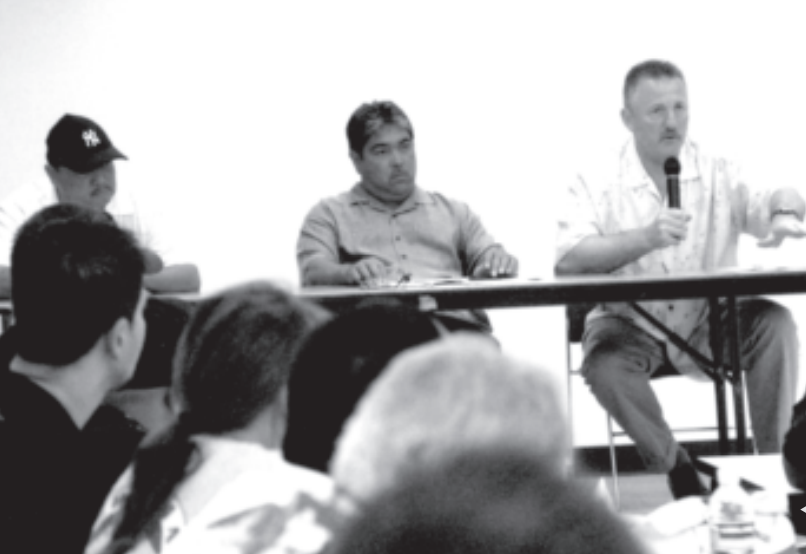
Unit 4201 Overall Chair Nate Lum, International Vice President Hawaii Wesley Furtado, and International President Bob McEllrath inform members of preparations for next year’s longshore negotiations.
